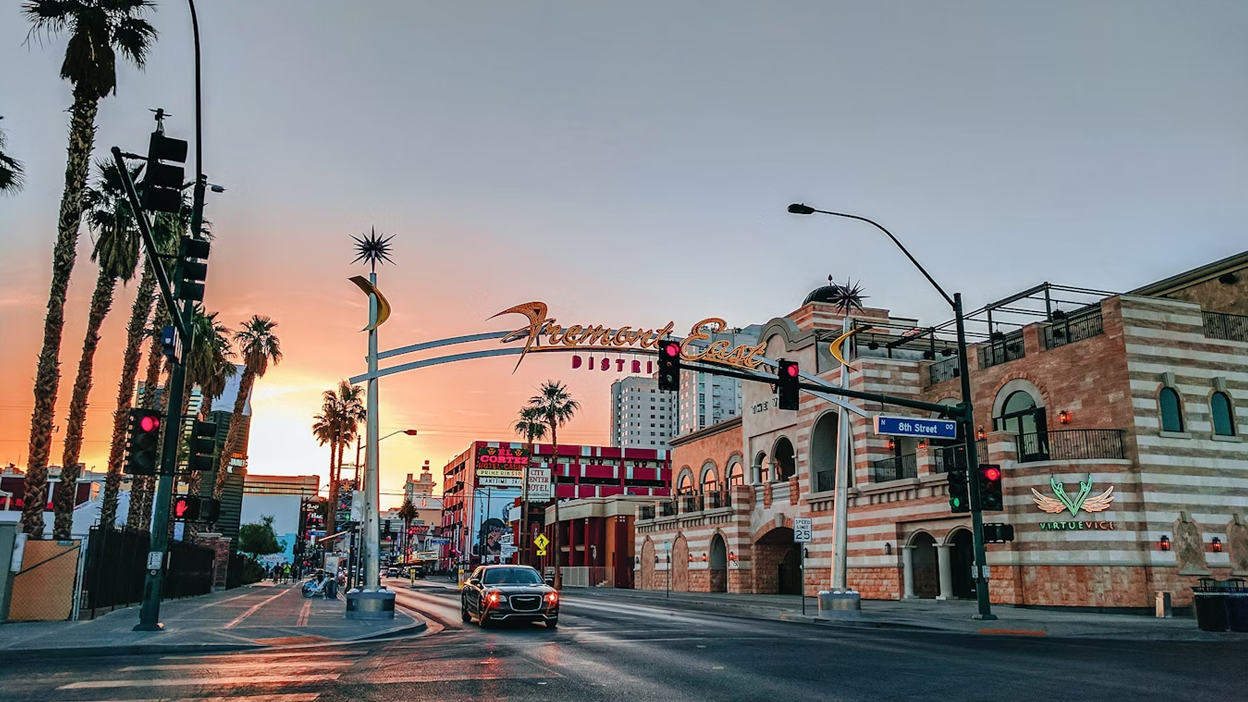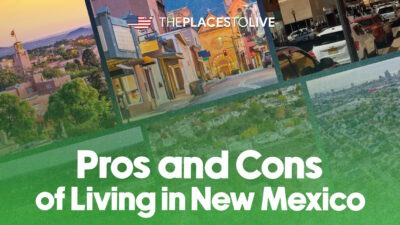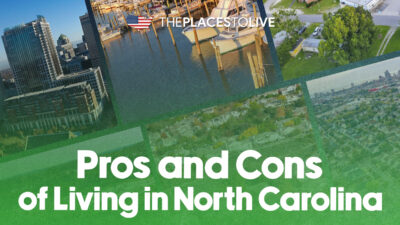Things to Know Before Moving to Nevada: The Ultimate Relocation Guide
Moving to Nevada is an exciting decision. Whether you’re drawn by its outdoor adventures, no state income tax, vibrant cities, or affordable housing, understanding things to know before moving to Nevada is essential for a smooth transition. This comprehensive relocation guide covers everything from lifestyle and cost of living to legal requirements and top moving tips.
If you are considering relocating to Nevada, this detailed post will equip you with practical advice and insider knowledge. We’ll spotlight key lifestyle aspects, break down Nevada’s cost of living, and offer expert moving to Nevada tips so you can confidently make this Golden State neighbor your new home.
Overview of Nevada Lifestyle: A Perfect Blend of Urban and Outdoor Living

Nevada offers a dynamic lifestyle that perfectly balances city life with outdoor adventure, making it a unique destination for relocating to Nevada.
Outdoor Activities: Hiking, Skiing, and Scenic Beauty
For nature lovers, Nevada is a playground of outdoor opportunities. Southern Nevada features the breathtaking Red Rock Canyon with miles of hiking trails and rock climbing. Northern Nevada, especially around Lake Tahoe and the Sierra Nevada mountains, offers world-class skiing during winter and trekking in summer. Whether you enjoy cross-country skiing, mountain biking, or simply exploring scenic wilderness, Nevada caters to all outdoor hobbies.
Recommendation: Consider stocking up on hiking and skiing gear from REI. Their quality equipment ensures you’re prepared for Nevada’s diverse landscapes.
Urban Entertainment: Vibrant Cities with Culture and Dining
Nevada’s urban centers provide lively social scenes:
- Las Vegas: World-famous for entertainment, casinos, fine dining, and cultural events.
- Reno: Known as “The Biggest Little City in the World,” it blends urban amenities with proximity to nature.
- Henderson: A fast-growing city offering family-friendly neighborhoods and a range of shopping and dining options.
These cities host frequent cultural festivals, live performances, and offer diverse culinary experiences from local eateries to upscale restaurants.
Climate: Desert Heat Meets Alpine Seasons
Southern Nevada experiences a dry, warm climate with scorching summers and mild winters. Expect sunny skies almost year-round. Northern Nevada features four distinct seasons with snowy winters and crisp autumns and springs, especially near higher elevations like Reno and Lake Tahoe.
Recommendation: Prepare for Nevada’s weather with climate-appropriate gear from Patagonia, ideal for desert heat and mountain cold alike.
Popular Cities and Neighborhoods for New Residents
Newcomers often choose these Nevada hotspots:
- Reno and Sparks: Known for affordable living, outdoor access, and suburban comfort.
- Henderson: Offers safety, quality schools, and a suburban vibe.
- Las Vegas: Attracts younger professionals and entertainment seekers.
Each city has distinct neighborhood cultures and amenities supporting varied lifestyles.
Suggestion: Explore detailed local city guides tailored for newcomers to quickly get acclimated.
Nevada Cost of Living Breakdown: What to Expect Financially

Understanding the Nevada cost of living is critical in your planning.
Housing Costs: Affordable Alternatives to California
Nevada’s most significant draw for many is its affordable housing. Compared to neighboring California, Nevada offers more spacious homes at lower prices, especially in Reno and Sparks. Las Vegas suburbs also provide competitive real estate options, though prices can be higher than northern parts.
Utilities and Transportation Expenses
Nevada’s utilities generally align with national averages. Electricity usage can be high during hot summers due to air conditioning but remains reasonable overall.
Transportation costs include fuel prices near the national average and public transit options primarily around urban centers. Owning a vehicle is common in many parts of Nevada due to limited transit outside cities.
Tax Structure: No State Income Tax
Nevada stands out with no state income tax, a huge money saver compared to most states. Residents pay property taxes (varying by county) and sales taxes that hover around 6.85% to 8.25% depending on location, but the lack of income tax offsets this expense significantly.
Regional Cost Variations
- Reno and Sparks: Typically more affordable housing and lower property taxes.
- Las Vegas and Henderson: Higher prices due to demand and urban amenities.
Budgeting and Money Management
New residents benefit from budgeting tools to manage moving and living expenses.
Recommendation: Use apps such as Mint or You Need A Budget (YNAB) to keep your finances organized before and after the move.
Moving to Nevada Tips: Smart Planning for a Smooth Transition
Executing your move with the right strategy makes all the difference.
Best Time to Move
Aim for spring or fall. This avoids southern Nevada’s intense summer heat and northern Nevada’s winter snow, ensuring safer, less stressful travels.
Choosing Moving Services
Select reputable movers to prevent costly mishaps:
- Allied Van Lines for comprehensive services, including interstate moving.
- U-Haul for flexible truck rentals and moving containers, ideal for partial DIY moves.
Packing Tips for Efficiency
- Clearly label every box by contents and destination room.
- Use quality packing materials like bubble wrap, sturdy boxes, and packing tape.
- Consider moving containers for affordable, flexible options if you want to manage some packing yourself.
Suggestion: Invest in packing supplies from trusted brands to protect your belongings during transit.
Important Things to Know Before Moving to Nevada: Legal & Administrative Essentials
Navigating Nevada’s administrative requirements is key.
Driver’s License and Vehicle Registration
Nevada requires new residents to update their driver’s licenses within 30 days of moving. Vehicle registration must also be completed promptly. The Nevada DMV offers online resources to guide these processes.
Taxes: What to Expect
While there is no state income tax, property taxes and sales taxes apply. Understanding this helps prevent surprises during tax season.
Voter Registration
New residents should register to vote promptly, usually possible at the time of driver’s license renewal or online.
Healthcare Access
Healthcare is widely accessible, particularly near urban centers like Las Vegas, Reno, and Henderson. It’s advisable to research local hospitals, clinics, and insurance options ahead of your move.
Public Education System
If relocating with children, investigate local school districts. Quality and funding vary, so comprehensive research will guide the best neighborhood choice.
Recommendations: Consider LegalZoom for paperwork support, local insurance providers for renters or homeowners insurance, and trusted healthcare plan guides.
Relocating to Nevada: Neighborhood & Housing Insights

Choosing the right neighborhood and housing depends on your lifestyle needs.
Neighborhood Selection Based on Lifestyle
- Families often prefer suburban areas of Reno or Henderson, known for safety and good schools.
- Young professionals might opt for downtown Las Vegas or Sparks, favoring nightlife and convenience.
Rental Market and Buying Opportunities
Nevada’s rental market is more affordable than many western states but competitive in popular areas. For homebuyers, options range from townhomes to spacious single-family homes, with active real estate markets especially in Reno and Las Vegas.
Online Real Estate Tools
Use platforms like Zillow and Redfin to explore listings, check market trends, and compare neighborhood amenities and schools.
What to Look For
Important factors include proximity to:
- Quality schools
- Parks and shopping centers
- Good infrastructure like roads and public transport
FAQs
What is the average rent in Nevada?
Rents vary by city, with Henderson averaging around $1,300 to $1,600 per month and Las Vegas slightly higher. These prices are generally more affordable than California’s major cities.
How does Nevada’s tax system affect residents?
Nevada’s no state income tax provides major savings. Residents pay property taxes and sales taxes, which differ by region but are moderate.
What is the climate like year-round?
Southern Nevada is hot and dry with mild winters. Northern Nevada experiences four seasons—with snowy, alpine winters around Reno and Lake Tahoe.
Are there good job opportunities for newcomers?
Yes. Sectors like technology, logistics, healthcare, and entertainment are booming, especially in Reno, Henderson, and Las Vegas.
How safe are different cities in Nevada?
Henderson ranks as the 2nd safest city in the U.S. Safety varies by neighborhood, so researching specific areas is advised.
Conclusion
Things to know before moving to Nevada include understanding the diverse Nevada lifestyle that combines urban excitement with outdoor escapes. The state’s affordable cost of living, especially its housing market and tax advantages, make it appealing for newcomers.
Success in relocating hinges on thorough planning. Use our moving to Nevada tips—from timing your move to choosing the right movers and budgeting tools. Don’t skip essential legal and administrative updates like driver’s license changes and voter registration.
To navigate neighborhood and housing decisions, rely on trusted platforms like Zillow and Redfin. Consider services for legal paperwork, insurance, and outdoor gear to support your transition.
Take advantage of detailed city guides and consult relocation experts to tailor your Nevada move perfectly. With careful preparation and insider knowledge, your journey to the Silver State will be smooth and rewarding.
Ready to make Nevada home? Explore our city-specific relocation guides and start planning your move today!





